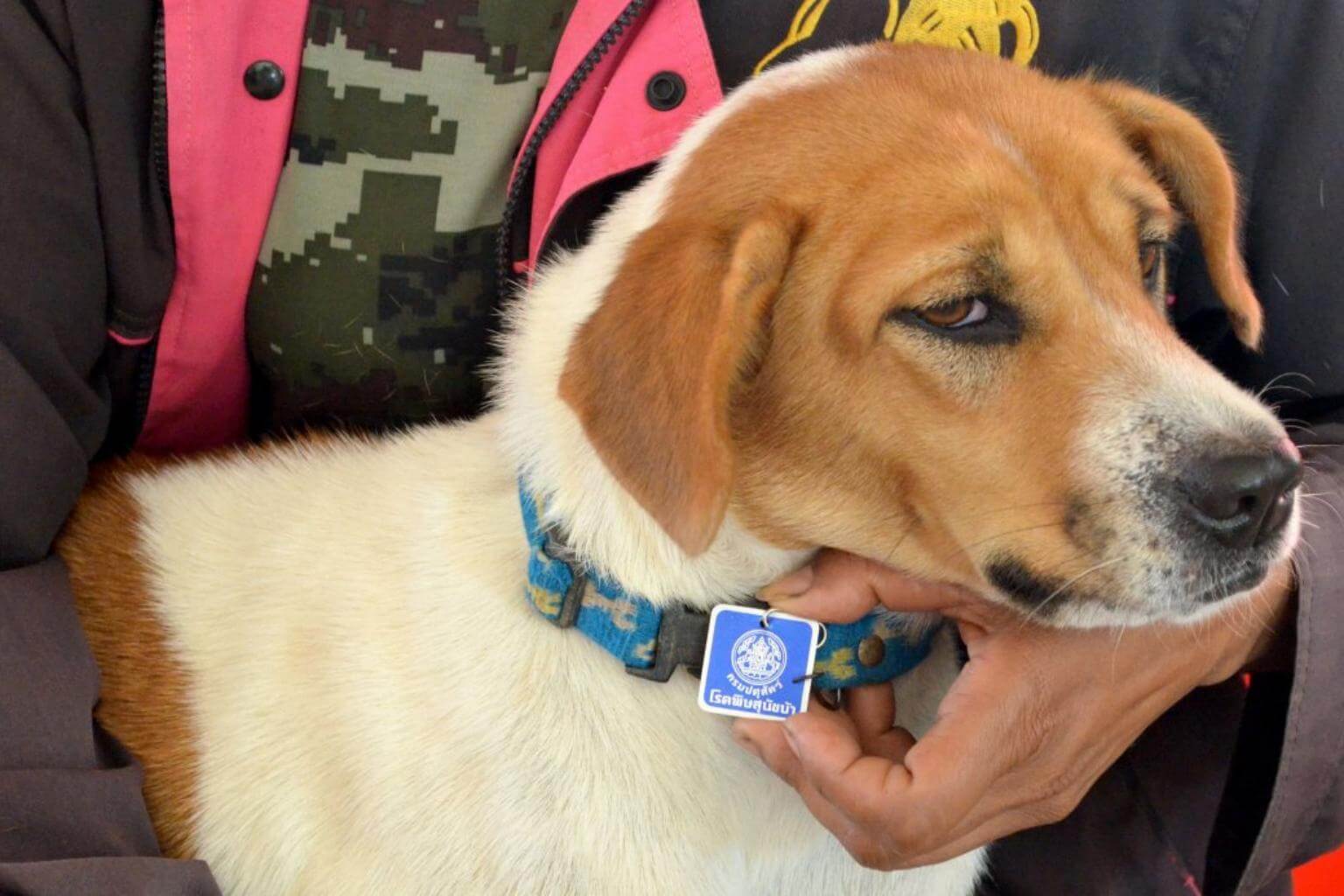Thailand steps up rabies vaccinations as infections spread
Sign up now: Get insights on Asia's fast-moving developments

A failure to vaccinate pet animals in Thailand is a petty offence punishable by a 200-baht (S$8.40) fine per animal.
PHOTO: THE NATION/ASIA NEWS NETWORK
Follow topic:
BANGKOK (THE NATION/ASIA NEWS NETWORK) - Thai authorities are stepping up rabies vaccinations for dogs and cats after 22 provinces across the country have been announced as rabies "red zones", with at least three human deaths attributed to the deadly disease reported so far this year.
The Livestock Development Department and other agencies said there is a need to intensify the rate of vaccination as many people do not know that death is almost guaranteed if a person is bitten by an infected animal - usually a dog or cat - unless they quickly receive a full dose of vaccine.
However, local administrations in the North-east region do not have enough vaccine to service all areas.
There were 359 confirmed cases of rabies infections in animals reported in 37 provinces, mostly in the north-eastern and southern regions, from the beginning of the year until Sunday (March 11), according to the Livestock Development Department's rabies monitoring network.
The outbreak has spread rapidly compared to last year with 315 confirmed cases in January and February this year, double the number over the same period in 2017.
Livestock Development Department deputy chief Chirasak Pipattanapongsophon last week blamed the virus' spread on the fact that many pet owners had failed to take their animals in for vaccination and allowed them to stray outside, exposing them to rabid dogs.
A failure to vaccinate pet animals is a petty offence punishable by a 200-baht (S$8.40) fine per animal.
The bureaucracy managing the vaccinations, which has caused delays to some local bodies' anti-rabies efforts, has also been blamed on social media as a factor contributing to the current outbreak.
Nakhon Ratchasima Governor Wichian Chantharanothai said on Monday that he had ordered rabies centres be set up in all 32 districts of the province, where the outbreak has been detected in nine districts.
Wichian added that the latest suspected rabies case involving a human had been reported in Soeng Sang district, where a 48-year-old man had died. He said the results of lab tests to confirm the cause of the death would be available this week, which might raise the official death toll to four.
People in Ubon Ratchathani's Natan district panicked on Monday after stray dogs bit people in Hat Chom Dao, according to Prakrong Buddapan, chief of Tambon Natan.
However, the district livestock authority said the stray dogs involved were not infected. "Our major concern is that we don't have enough vaccine for dogs and cats in the areas," said Chavalit Litthisuth, chief of the Natan district livestock authority.
In Buri Ram's Krasang district on Monday, Livestock Development Department and local administrative officials vaccinated 500 pet cats and dogs as well as strays in four villages in Tambon Ban Preu after a one-year-old cow died from unknown causes. Its carcass was destroyed after it was tested, but another cow in the same enclosure has since developed suspicious symptoms.
Vaccinations were also stepped up in Loei's Erawan district on Monday after two rabid dogs were found in nearby Tha Li and Na Haeo districts. A survey this year found that there were 70,000 cats and dogs in the northeastern province.
In Tak's Mae Sot district, public health volunteers in Tambon Mae Pa vaccinated more than 100 pet cats and dogs in 11 villages after authorities declared two villages as "zones under temporary watch" from February 27 through March 26. In Trang's Huai Yot district, officials vaccinated 1,000 pet and stray dogs, especially those in a five-kilometre radius of where a dog in Tambon Tha Ngew was recently found infected.
Meanwhile, the mayor of Muang Nakhon Ratchasima's Tambon Suranaree, Somyot Ratana-preeyanuch, has been ordered to pay back a budget that he had approved to buy rabies vaccines during a 2013 outbreak after an investigation. At the time, the authority to distribute vaccines was held by provincial livestock development offices, which were slow to make disbursements. Since late 2016, the Interior Ministry has allowed local administrative bodies to buy vaccines to ensure a more timely response in emergencies.

